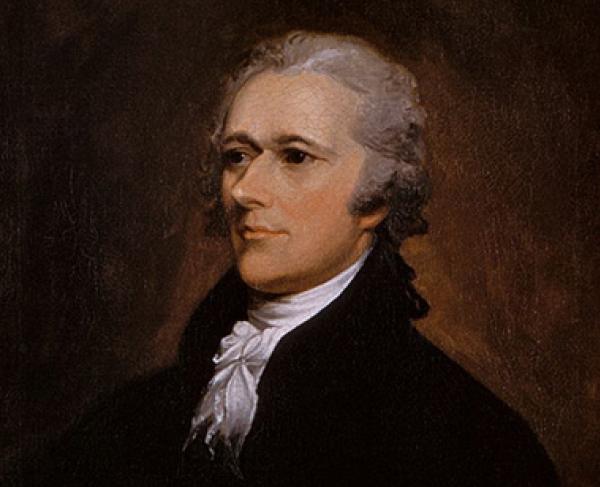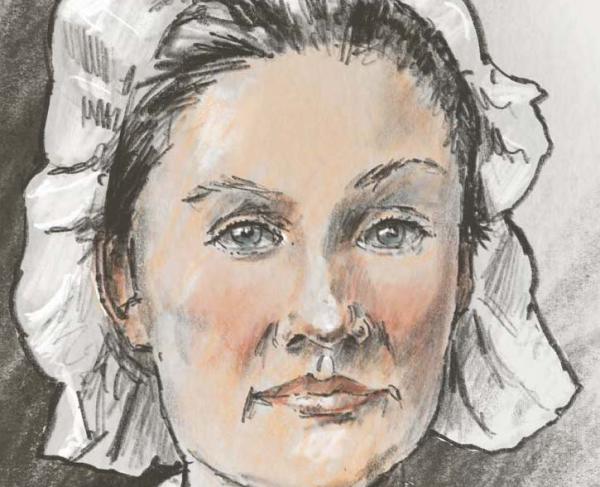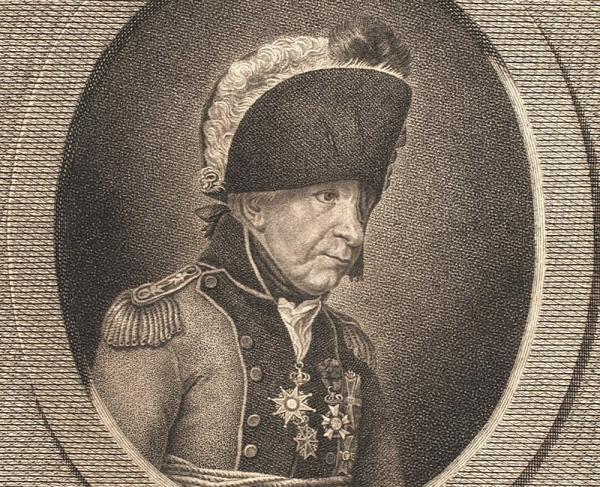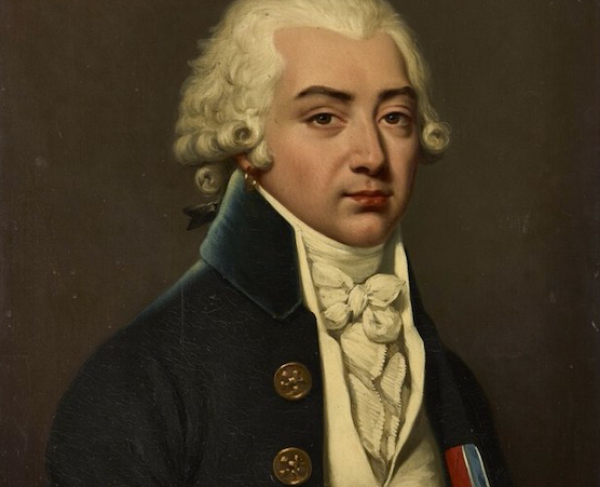Alexander Hamilton

Born a bastard (illegitimate) child on January 11, 1755 or 1757, to Scotsman James Hamilton and Rachel Fawcett Levine on the British colonial island of Nevis in the Caribbean, Alexander Hamilton possessed a razor sharp mind as well as an indomitable will. Intellectually gifted, he sought a collegiate education at King’s College (now Columbia University) in New York. In the wake of the Boston Tea Party, Hamilton dropped out of school to pursue the radical American cause, joining the Sons of Liberty. After the War for Independence broke out, Hamilton secured a commission as a captain in a New York Artillery company.
He first gained notice by George Washington during the New York and New Jersey Campaign. Washington recognized Hamilton's fiery demeanor, command of organization, and fidelity to the cause. By March 1777, Hamilton had become firmly entrenched as one of Washington's intimate military family. He became an aide-de-camp and was promoted to lieutenant colonel. Like his French counterpart Lafayette, Hamilton and Washington assumed a father-son relationship. Not suited for desk work, Hamilton yearned for a combat command and played a pivotal role during the Siege of Yorktown where he led the successful American assault on British Redoubt #10.
Like many others who served in the Continental Army, Hamilton disdained Congress as inept, which resulted in his firm conviction that the new United States required a strong central government. After the war, he returned to New York City where he joined the bar and practiced law. In 1787, he was appointed as one of the New York delegates to the Constitutional Convention. There, he debated for his vision of American government. After the Constitution was drafted, he along with Virginian, James Madison, and fellow New Yorker, John Jay, penned what became known as The Federalist Papers. This series of essays, published anonymously, argued for ratification of the Constitution.
President Washington appointed Hamilton as the first Secretary of the Treasury, where he laid the foundation for an American economic empire. He also became the de facto head of one of America's first political parties, the Federalists. Hamilton's life came to an end on July 12, 1804, when he was mortally wounded in a duel with Vice President Aaron Burr, a political rival.
Hamilton has his face of the ten dollar bill, one of only two men who was not a president to have his face on American currency (the other is Ben Franklin). Hamilton's name has recently gained attention from a musical bearing his name. First premiering in 2015 in Manhattan, the musical tells the the story of Alexander Hamilton, from his early years in the West Indies to his duel with Burr. The musical has gained critical acclaim and continues to sell out shows.
Related Battles
389
8,589


